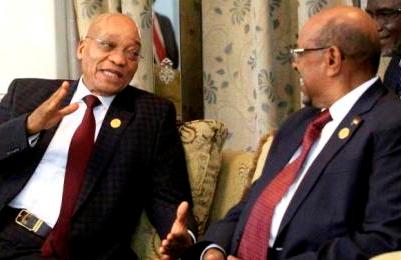South African president in Sudan for talks on bilateral relations
January 31, 2015 (KHARTOUM) – South African president Jacob Zuma arrived Saturday in Khartoum starting a two-day visit where he holds talks with his Sudanese counterpart Omer al-Bashir on bilateral relations.

Zuma made a short visit to Khartoum on his way to attend the celebrations of South Sudan independence on 8 July 2011.
Speaking to reporters at Khartoum airport following Zuma’s arrival, foreign minister Ali Karti praised South Africa’s positive stances at the UN Security Council and African Union Peace and Security Council on issues related to Sudan.
He further pointed to the economic partnership between the two countries, adding that Sudan would benefit from the South African agricultural, industrial and mining technologies, asw ell as the training of Sudanese personnel.
Bilateral talks on Sunday “will focus on the follow-up of all subjects, and will seek to further strengthen coordination between the two countries,” he added.
After his election in 2009, Zuma said that Bashir is not welcome in South Africa and warned he would be arrested in compliance with an arrest warrant issued by the International Criminal Court (ICC) on ten counts of war crimes, crimes against humanity and genocide he allegedly masterminded in Darfur region.
However, South African commentators criticise Zuma’s foreign policy claiming he focuses much on economic interests than human rights and democratic principles.
(ST)
